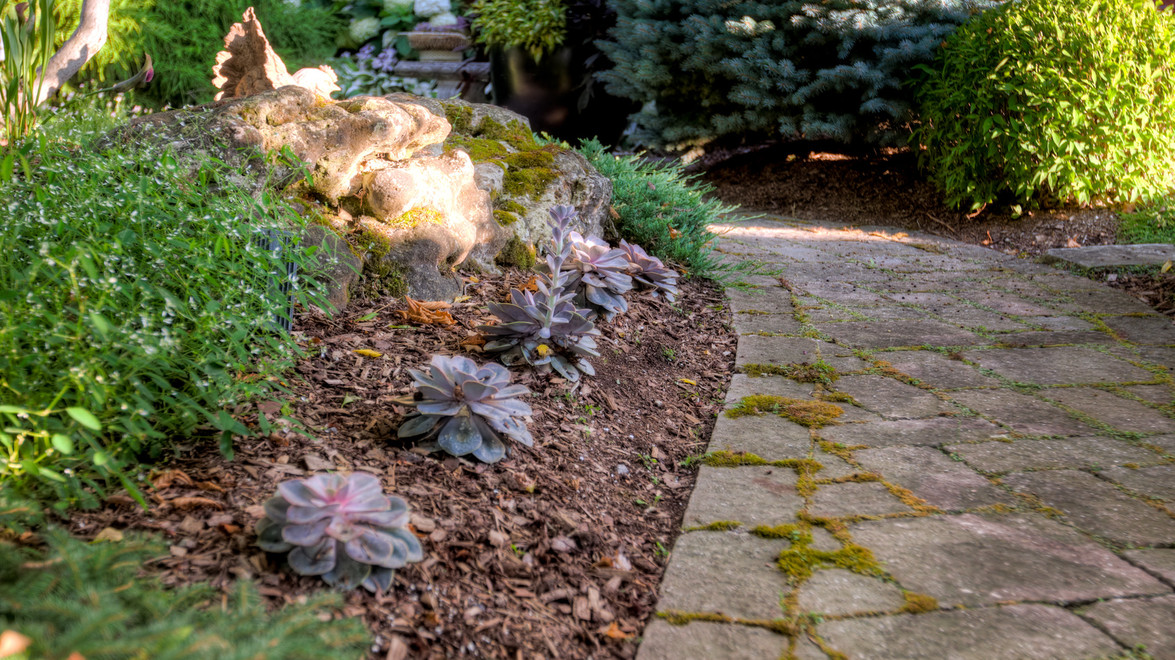
Mulching your garden will do more than just improve its appearance. When applied properly, mulch can help retain soil moisture, regulate soil temperature, reduce weeds and add organic matter to soil.
Adding a layer of mulch to your gardens will help retain moisture, meaning you can water your plants less often than you would otherwise. Using shredded pine bark mulch to top your gardens will create a barrier above the soil, keeping moisture in the ground instead of allowing it to evaporate.
Pine bark mulch is also a great option because it allows air to circulate and to reach the soil instead of packing down like other types of mulch. It can easily be “fluffed up” to look like it was freshly applied. In the winter it acts as insulation to keep roots comfortable while in the summer months keeps the soil cool by protecting it from direct sunlight.
When layered 2 to 3 inches deep, pine bark mulch is an effective weed control. To really keep the weeds under control in a fresh garden with bare soil, place damp newspaper atop the soil, followed by a layer of mulch. This will really keep the weeds down and retain moisture in the soil.
Shredded pine bark mulch is also a great product as it has a natural colour without being artificially dyed like red and black mulch. Unlike hardwood mulches, pine bark mulch is acidic as it breaks down regulating the ph level of the soil.
Be cautious not to over apply or over water mulch. If too much mulch is applied on top of the soil, air cannot circulate and roots will suffer from excess moisture. Wood mulch can sour if stored incorrectly. If mulch smells like vinegar or rotten eggs, avoid using right away. Spread it out thinly away from plants for a few days, this will release toxins by exposing it to rain and fresh air.
Post contributed by Chelsea Mills, Jr. Landscape Designer
Need inspiration for your garden? Visit our garden services page.
